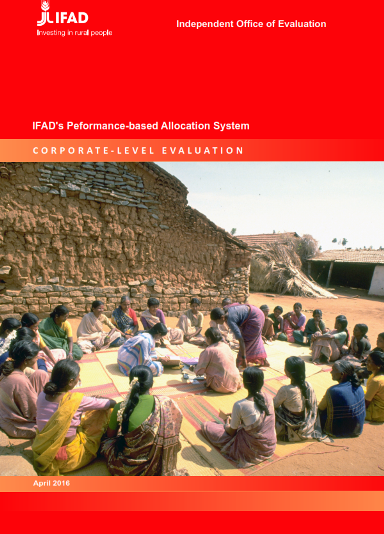IFAD’s Performance-based Allocation System - IOE

IFAD’s Performance-based Allocation System
Overview
IFAD’s Performance-based Allocation System
Corporate-level Evaluation
Background
Since it was introduced by IFAD's Executive Board in 2003, the Performance-based Allocation System (PBAS) has enhanced the Fund's credibility, transparency and predictability of financial resource allocations to its developing Member States. The core feature of IFAD's PBAS is that country allocations are calculated using a specific formula to generate a country score, using several variables that, put together, determine country needs and country performance. Overall, the PBAS is found to be relevant. The formula should better factor in some key dimensions of IFAD's priorities, such as food security, nutrition and climate change. It also should improve the way it considers vulnerability issues as determinants of country needs. The evaluation finds the system's effectiveness to be on the whole moderately satisfactory. The rationale for including or excluding countries from the PBAS and the underlying mechanisms guiding the capping system should be made more explicit and institutionalized. Among the recommendations, the need to refine the PBAS design, by sharpening its objectives and strengthening the rural poverty focus; streamline the process for better effectiveness; and enhance management and governance, by taking a more corporate approach to the PBAS in general.
| In-house learning event on the CLE-PBAS, 9 March 2016, IFAD headquarters. Photo by Maurizio Navarra. |